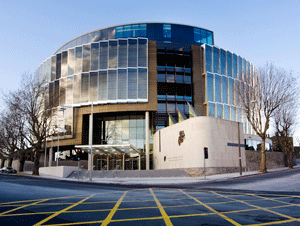Dublin rape trial collapses due to allegedly prejudicial newspaper report

A rape trial has collapsed due to an allegedly prejudicial newspaper report which linked the case to the ongoing debate around the fairness of rape trials.
The trial involved a man accused of raping a woman he met on a night out in 2015. It had run for six days and was at the closing stages, with the jury sent out on Friday to begin deliberations.
Lawyers for the defendant told Dublin Central Criminal Court yesterday that a comment piece appeared in the Irish Independent on Saturday which implied that he was guilty and that “the complainant is, in fact, a victim”.
Acceding to an application to discharge the jury, Mr Justice Paul McDermott said that the article came close to scandalising the court.
He said the article, with the headline “A tipping point has come from high-profile cases shining painful spotlights”, stated that “society has had a bellyful” in relation to rape trials.
While people are entitled to have views about these matters, he insisted it was unacceptable to juxtapose an ongoing trial with those views and other cases with a level of notoriety.
Mr Justice McDermott said that the unprecedented media coverage included references that a fair trial was not being conducted. He told the jury of four men and eight women that it was unacceptable that a trial was subjected to such comment.
The publication of the article had, he said, caused a situation to arise in which difficulties presented to the complainant would have to be revisited and the defendant would have to await a potential retrial.
He said the trial had been conducted with commendable professionalism by both the defence and the prosecution, and the cross-examination on any relevant material was done responsibly - and if it wasn’t, the court would have intervened.
He said there was an implicit criticism of mounting a defence on behalf of an accused and this was the fundamental core of the right to a fair trial. He added that the suggestion that this trial was conducted improperly was simply wrong.
Opposing the application on behalf of Director of Public Prosecutions, James Dwyer SC submitted that the court could remedy the situation by instructing jurors to put any comment or articles out of their mind when deliberating on the case.
Earlier Anne-Marie Lawlor SC, defending, told the court that her client had being awaiting trial since 2015 and that the trial had been listed to go on three previous occasions. She said this allegation hanging over him had created very significant personal and professional difficulties.
She said that, until the publication of the article, he was satisfied that he had received a fair trial, but he could no longer be satisfied that a jury could assess the evidence given the context.
Ms Lawlor said the article appeared to advance a position that society has had enough of incorrect or wrongful acquittals of persons.
She said it “advances that society will change, and that this case, being used as a pivot for this opinion, may operate as a bellwether for change”, amounting to an exhortation to the jury to convict the accused.
Ms Lawlor said the article, alongside an accompanying editorial, contained a criticism of the trial process. She said this process presumed a person to be innocent and gave an opportunity to test the evidence against an accused.
Mr Justice McDermott said the articles referred to how a person’s clothes or whether they had been drinking might be held against them in rape trials.
This comment about rape trials was then juxtaposed with facts from the trial before the court. He said the publication appeared to involve contempt, but there was a “whiff of scandalising the court as well”. He added that it was the DPP’s jurisdiction to prosecute for contempt of court and that there is no such prosecution before the court.
Declan Brennan, CCC.nuacht




